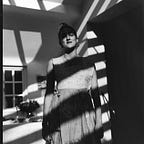Lil Nas X’s Old Town Road — a social media Cinderella story.
Lil Nas X’s stratospheric ascent to superstardom is a social media Cinderella story that demonstrates the transformational effect digital natives can have on the music industry and society at large. The first openly homosexual Hip-Hop and Black Country music star, Lil Nas is both an outlier and trailblazer; emblematic of Gen Z’s progressive fluidity in both identity and genre.
In December 2018 Lil Nas released his first single, Old Town Road (OTR). Whilst “Gen Z aren’t interested in labels” (Evershed, 2019), he used categorisation to his advantage, classifying the song in the less competitive Country genre online. Also engaging strategically with social media, Lil Nas included “lines that would appeal to active Twitter users” (Leight, 2019), and took into account Red Dead Redemption 2, a blockbuster cowboy video game. It was the #yeehawchallenge on TikTok which took the song viral, tapping into the black cowboy aesthetic of preexisting trend the yeehaw agenda, and resulting in OTR entering the Billboard charts in March off the back of digital streams. In the same month, less than 6 months after releasing the track which cost less than $100 to make, Lil Nas was signed with Columbia records.
Despite its clear roots in Black music, Country is associated with conservative America thanks to ideological efforts to, “[call] white people to their whiteness” (Mann, 2008, p.76). When OTR entered the Billboard Hot Country chart, it was quickly removed, allegedly because it was not Country enough. Billboards’ thinly veiled attempt to maintain white hegemony backfired, exposing the insidious racialisation underpinning music genres, and prompting a media outcry that saw OTR transition from social-media meme-sation to a socio-cultural symbol.
Shortly after, OTR’s remix with Country legend Billy Ray Cyrus cemented the songs success, surpassing a billion streams on Spotify and sitting at #1 on the charts for a staggering 19 weeks. The numbers don’t lie, and Lil Nas has surfed the wave of his success whilst confidently straddling both Country and Hip Hop, re-appropriating the former’s aesthetic in a very Black and very Queer way, and refuting tropes of toxic masculinity traditionally seen in the latter by casually coming out on Twitter at the end of Pride month in 2019. As Ron Perry asserts, “he’s been able to break down cultural barriers as well as pre-existing notions of musical genres” (Chow, 2019).
OTR is the latest digital music zeitgeist that works to transform mainstream pop aesthetics whilst subverting social norms. It’s success story is one of click bait meme culture, of Black Queer liberation and of the huge potential when “hybridised sound” is combined strategically with “the stratospheric rise of streaming services” (Evershed, 2019). It is a revolutionary example of “musical interpellation” (Mann, 2008, p.75), a testament to the democratisation of the internet that enables “the erosion of the systems that for generations kept artists like [Lil Nas] on the sidelines” (Chow, 2019). It is a brightly coloured, rhinestone covered example of how a song can infiltrate contemporary culture and break down socio-cultural barriers in a matter of weeks. Made up as it is of “a sprawling number of internet trends” (Tashjian, 2019), OTR embodies the multidisciplinary style of Gen Z’s unencumbered cultural creativity, one that defies convention and institutional binaries in favour of a Black, sexually fluid and unrestrained creative identity.
Essay written as part of Masters course entitled Global Culture and Creative Industries at SOAS university.
Module : The Music Business.
Bibliography
Abshire, Emily. July 2019. “The Remix Race: Why It Pays To Release Songs More Than Once”. NPR npr.org/2019/07/18/743121439/lil-nas-x-old-town-road-billie-eilish-bad-guy-remix-billboard-charts?t=1612455537300 (Accessed 8 Feb 2021)
Chow, Andrew. Aug 2019. “‘It Feels Like I’m Chosen to Do This.’ Inside the Record-Breaking Rise of Lil Nas X”. Time Magazine
time.com/5652803/lil-nas-x/#:~:text=%E2%80%9CHe’s%20been%20able%20to%20break,this%20is%20just%20the%20beginning.%E2%80%9D&text=Now%2C%20by%20definition%2C%20Lil%20Nas%20is%20the%20rule. (Accessed 8 Feb 2021)
Evershed, Megan. Apr 2019. “the musical genre is dead, gen z killed it”. ID Magazine i-d.vice.com/en_uk/article/597z88/gen-z-music-genre-lil-nas-x-billie-eilish-sofia-reyes (Accessed 8 Feb 2021)
Hesmondhalgh, David. 2020. “ Is Music Streaming Bad for Musicians? Problems of Evidence and Argument”. University of Leeds
Leight, Elias. March 2019. “Lil Nas X’s ‘Old Town Road’ Was a Country Hit. Then Country Changed Its Mind”. Rolling Stone Magazine
rollingstone.com/music/music-features/lil-nas-x-old-town-road-810844/ (Accessed 8 Feb 2021)
Leight, Elias. April 2019. “Lil Nas X’s Havoc-Wreaking Meme Is a Hit. He’s as Surprised as You Are”. Rolling Stone Magazine
rollingstone.com/music/music-features/lil-nas-x-old-town-road-country-trap-interview-815846/ (Accessed 8 Feb 2021)
Mann, Geoff. 2008. “Why does country music sound white? Race and the voice of nostalgia”. Ethnic and Racial Studies, 31:1, 73–100
Molanphy, Chris. Apr 2019. “The “Old Town Road” Controversy Reveals Problems Beyond Just Race”. Slate.com
slate.com/culture/2019/04/lil-nas-x-old-town-road-billboard-country-charts-hot-100.html (Accessed 8 Feb 2021)
Roberts, Randall. Nov 2016. “Conservative country music fans lash out at CMA performance by Beyoncé and the Dixie Chicks”. Los Angeles Times
latimes.com/entertainment/music/la-et-ms-conservative-cma-beyonce-dixie-chicks-20161103-htmlstory.html#:~:text=But%20conservative%20country%20music%20fans,performance%20of%20%E2%80%9CDaddy%20Lessons.%E2%80%9D&text=The%20song%20is%20from%20Beyonc%C3%A9's,it%20during%20concerts%20of%20late. (Accessed 8 Feb 2021)
Tashjian, Rachel. Apr 2019. “Welcome to the Yeehaw Agenda: The Black Cowboy Trend Behind the Internet’s Favorite Song”. GQ Magazine
gq.com/story/old-town-road-yeehaw-agenda (Accessed 8 Feb 2021)
